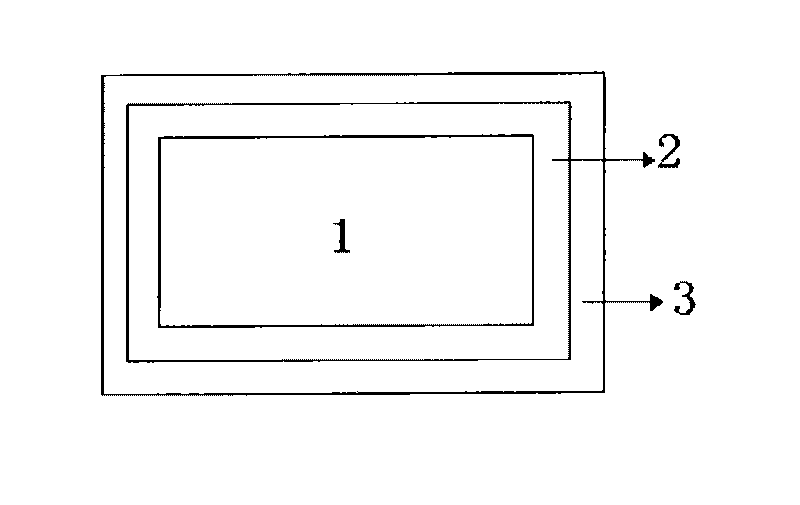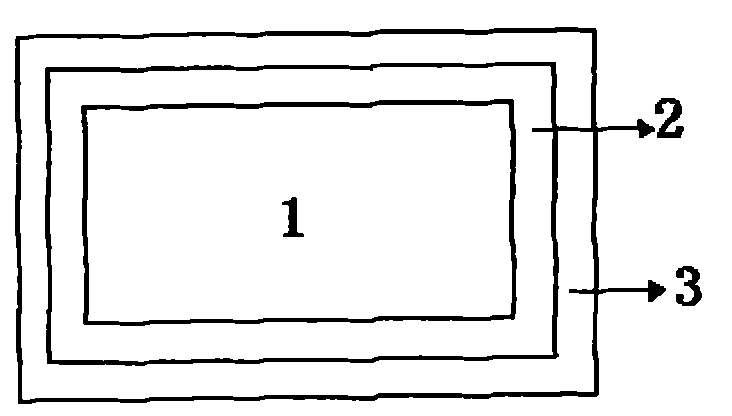Absorbable magnesium alloy stent of anticorrosion and drug release composite coating and preparation method thereof
A magnesium alloy stent and composite coating technology, which is applied in the directions of drug devices, stents, coatings, etc., can solve the problems of fast degradation and no drug-carrying coating, and improve corrosion resistance and surface biocompatibility. The effect of improving the anti-corrosion effect
- Summary
- Abstract
- Description
- Claims
- Application Information
AI Technical Summary
Problems solved by technology
Method used
Image
Examples
Embodiment 1
[0024] Magnesium alloy WE42 was engraved into a stent with a laser, and then placed in a solution containing 7% HCl and 8% FeCl 2 In the pickling solution, the power is 500W ultrasonic treatment for 30 minutes, and then it is placed in a vacuum furnace for annealing treatment, the temperature is raised to 1100°C at a rate of 3°C / min, and after being kept for 30 minutes, it is then heated at a rate of 4°C / min After the speed was lowered to 20°C, the ultrasonic cleaner with a power of 500W was used to ultrasonically clean in deionized water for 15 minutes and then dried. The magnesium alloy organic-inorganic composite coating on the surface of the cell experiment had good biocompatibility, and the degradation products were non-toxic.
[0025]An inorganic anti-corrosion coating was prepared on the dried scaffold. The micro-arc oxidation method is adopted, and the electrolyte composition is NaOH 1-200g / L, NaOH 2 SiO 3 1-200g / L, the oxidation time is 10-200min (such as 10, 20, 4...
Embodiment 2
[0031] The experimental conditions and operating process are the same as in Example 1, except that the oxidation current is changed to 0.01-2A / cm in the process of preparing the micro-arc oxidation inorganic coating 2 , Cell experiments show that the magnesium alloy organic-inorganic composite coating has good biocompatibility, the degradation products are non-toxic, and the film thickness is 10-60 μm.
[0032] The prepared stent was tested in Hank's artificial simulated body fluid at 37°C, and the results showed that the corrosion resistance of the magnesium alloy stent after the micro-arc oxidation film was sealed by the cross-linked gelatin / PLGA drug-loaded nanosphere composite film was much higher than that of the unsealed Corrosion resistance of magnesium alloy stents treated with inorganic coatings, changing the current parameters can change the corrosion resistance of magnesium alloys, the corrosion resistance of the micro-arc oxidation current density is 30 times the co...
Embodiment 3
[0034] The experimental conditions and operation process are similar to those of Examples 1 and 2, except that the cross-linked gelatin cross-linking method is changed in the process of preparing the magnesium alloy stent after the cross-linked gelatin / PLGA drug-loaded nano-microsphere composite film is sealed with the micro-arc oxidation film. The magnesium alloy organic-inorganic composite coating on the surface of the cell experiment has good biocompatibility, the degradation products are non-toxic, and the thickness of the film layer is 20-30 μm.
[0035] The prepared stents were tested in artificial simulated body fluid at 37°C. The results showed that the degradation cycles of the magnesium alloy stents after the micro-arc oxidation film was sealed by the cross-linked gelatin / PLGA drug-loaded nanosphere composite film with different degrees of gelatin cross-linking were different. The polymer coating degrades within 100-150 days, and the metal stent degrades within 240-42...
PUM
| Property | Measurement | Unit |
|---|---|---|
| thickness | aaaaa | aaaaa |
| thickness | aaaaa | aaaaa |
Abstract
Description
Claims
Application Information
 Login to View More
Login to View More - R&D
- Intellectual Property
- Life Sciences
- Materials
- Tech Scout
- Unparalleled Data Quality
- Higher Quality Content
- 60% Fewer Hallucinations
Browse by: Latest US Patents, China's latest patents, Technical Efficacy Thesaurus, Application Domain, Technology Topic, Popular Technical Reports.
© 2025 PatSnap. All rights reserved.Legal|Privacy policy|Modern Slavery Act Transparency Statement|Sitemap|About US| Contact US: help@patsnap.com


